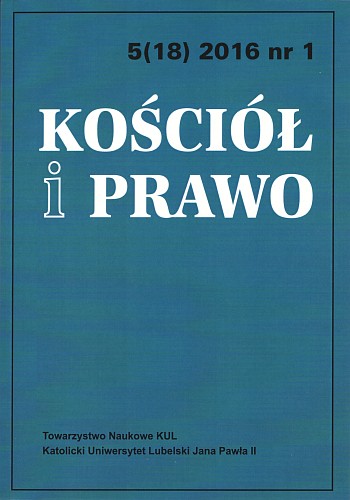Przestępstwo profanacji rzeczy świętej w Kodeksie Prawa Kanonicznego z 1983 roku
The Crime of Desecration of Holy Things in the 1983 Code of Canon Law
Author(s): Edyta NafalskaSubject(s): Christian Theology and Religion, Law, Constitution, Jurisprudence, Theology and Religion, Canon Law / Church Law
Published by: Towarzystwo Naukowe KUL & Katolicki Uniwersytet Lubelski Jana Pawła II
Keywords: punishment; desecration; crime; holy thing; unintentional fault; intentional fault
Summary/Abstract: The concept of holy things is not described by the legislator in 1983 Code in the detailed way. The legislator only determines that the competent body through the act of blessing or sacrifices grants sacred character to the item. In effect of such an act is to exclude the thing from public use and grant it a special nature, as well as protecting it. The right of the Church to punish the faithful who are commit acts forbidden by it is granted by its founder and belongs to the Church due to its social nature. The Church can impose criminal sanctions only on its faithful. The man becomes one of the faithful of the Church and subject to its rights and obligations in the moment of accepting holy baptism, or in the moment of formal admission to it. The subject regarding the crime of desecration can only be a natural person who is sane, i.e. conscious of their act in the moment of doing it as defined in the Canon Law and acting freely way. Whereas the profanation consists in using the thing, for secular or improper acts. The penalty which the legislator has provided for desecration of mobile and fixes things is a fair punishment, which is to be imposed by a judge or ecclesiastical superior in accordance with the principle of proportionality of punishment to the crime. It also take into account the circumstances of the act and the individual characteristics of the perpetrator.
Journal: Kościół i Prawo
- Issue Year: 5/2016
- Issue No: 1
- Page Range: 265-291
- Page Count: 27
- Language: Polish

